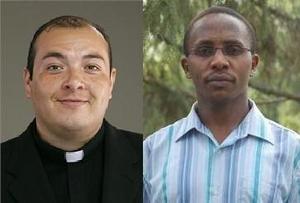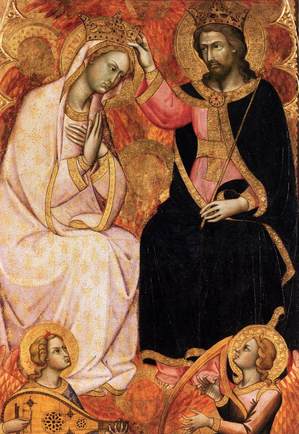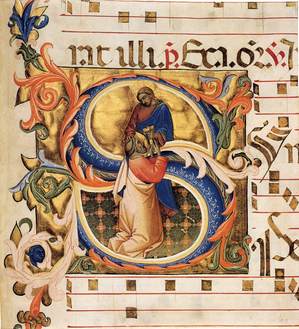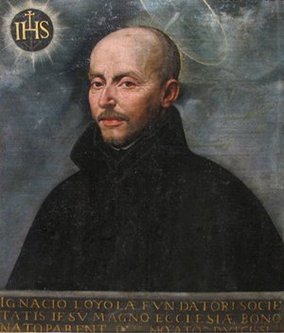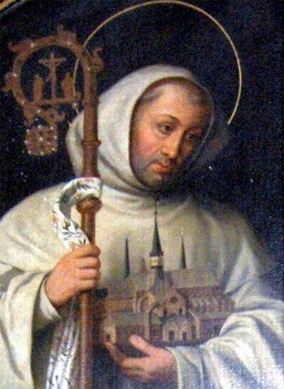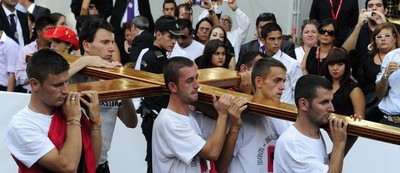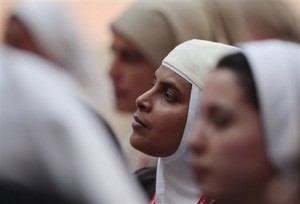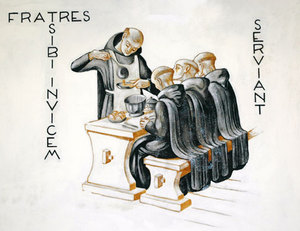On the palne ride to Madrid for this year’s World Youth Day, Pope Benedict fielded several questions from journalists. Here are three of the Q&A that I found interesting.
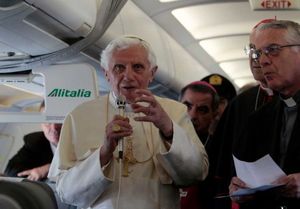
Question: What is the significance of these events in the pastoral “strategy” of the Universal Church in the third millennium?
Answer: Dear friends, greetings! I’m happy to go with you to Spain for this great event. After having personally experienced two WYD, I can only say that it was truly an inspiration that had been given to Pope John Paul II when he created the idea of a large gathering of young people and of the world with the Lord. I would say that these WYD are a signal, a cascade of light; they give visibility to the faith, of God’s presence in the world, and thus foster the courage to be a believer. Believers often feel isolated in this world, almost lost. Here they see that they are not alone, that there is a large network of faith, a great community of believers in the world, that it is nice to live in this universal bond of friendship. And it is thus that I think friendships are born, friendships across the boundaries of different cultures and different countries. It is this birth of a universal network of friendship, which links the world and God, and is an important reality for the future of humanity and for the life of humanity today. Of course, World Youth Day cannot be an isolated incident: it is part of a larger journey, which has been prepared by the way of the Cross which has travelled to different countries already uniting young people in the sign of the Cross and the wonderful sign of the Virgin Mary. And thus it is that the preparation for World Youth Day is much more than the logistics of planning an event which naturally has many technical problems. It is requires an inner preparation, a willingness to join a path that brings us to others so that we can journey together towards God. And then, later, following the establishment of groups of friends, keeping this universal contact opens the borders of cultures, of human and religious differences, and continues a path which then leads to a new arrival point in a new WYD. It seems to me that the World Youth Day should be considered in this sense, as a sign, a part of a great journey, which creates friendships, open borders and demonstrates that is good to be with God, and that God is with us. In this sense, we want to continue with this great idea of Blessed Pope John Paul II.
Continue reading Pope Benedict speaks to journalists: there’s a universal bond of friendship, truth accessible in freedom, truth is dialogic
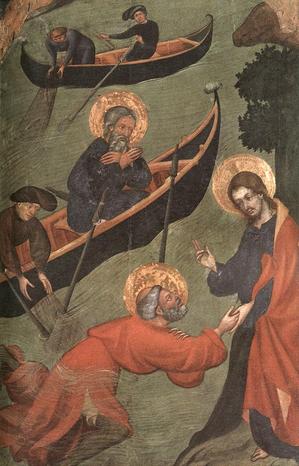 Jesus invited us to meet. Saint Benedict’s talked about it; a plethora of saints have talked about it; Fr Giussani constantly talked about it; Pope Benedict XVI talks about it: nothing can substitute for personally knowing Jesus. Want to be a Christian? Go and meet Christ in Scripture, in the Holy Eucharist, in personal and communal prayer, in doing good works. In short, meet Jesus Christ by the ears of your heart and in your minute by minute human experience.
Jesus invited us to meet. Saint Benedict’s talked about it; a plethora of saints have talked about it; Fr Giussani constantly talked about it; Pope Benedict XVI talks about it: nothing can substitute for personally knowing Jesus. Want to be a Christian? Go and meet Christ in Scripture, in the Holy Eucharist, in personal and communal prayer, in doing good works. In short, meet Jesus Christ by the ears of your heart and in your minute by minute human experience.